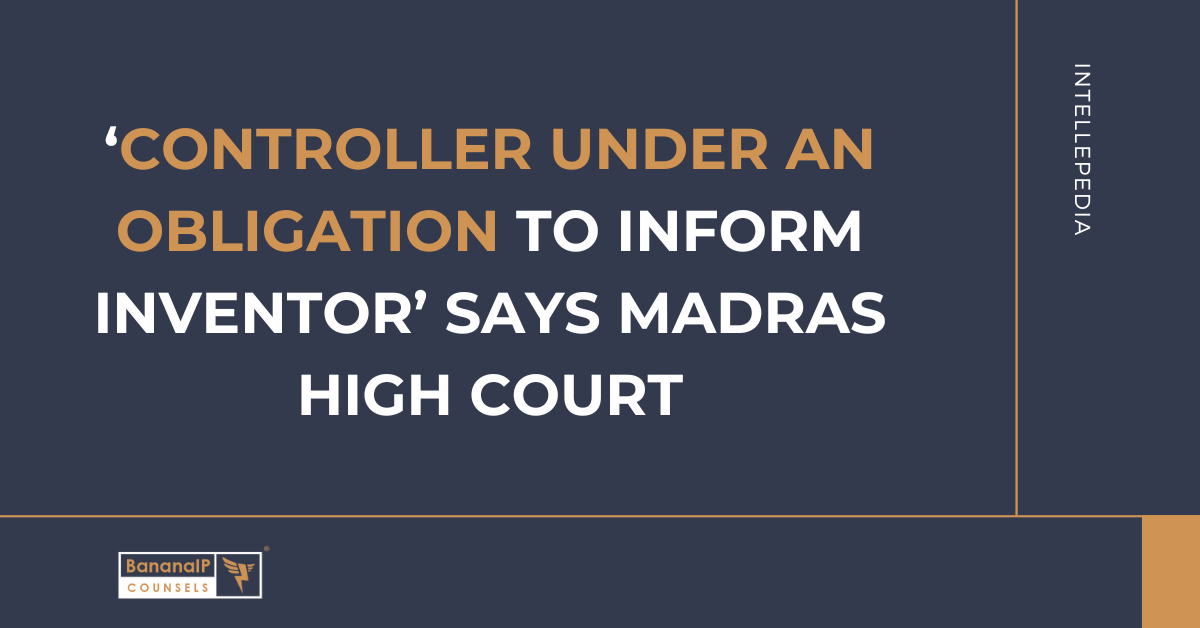Introduction:
This post discusses two significant orders issued by the Madras High Court on patent refusals: Nihon Onkyo Engineering Co. Ltd. vs. The Controller General of Patents and the Deputy Controller of Patents and Designs ((T)CMA(PT) No.172 of 2023 (SR.No.4/2020/PT/CHN) dated 8th March 2024) and Qualcomm Incorporated vs. The Controller General of Patents and Designs ((T)CMA(PT) No.168 of 2023 (OA/SR.40/2020/PT/CHN) dated 19th March 2024). These two orders underscore the necessity for Controllers to provide detailed and well-reasoned orders, ensuring that the Applicants understand the basis for any refusal, especially given the potential for judicial review.
Facts:
The first case involves Nihon Onkyo Engineering Co. Ltd. (referred to as ‘Nihon’) challenging the refusal of their patent application (7501/CHENP/2010). The Controller denied the application under Sections 3(k) and 59 of the Patents Act, 1970. Nihon’s patent pertains to a reflector structure, a sound field adjusting method, a columnar reflector structure, a room design, a program, and various acoustic room designing systems for a wide frequency range.
The second case concerns Qualcomm Incorporated’s appeal against the refusal of their patent application (3484/CHENP/2009). Qualcomm’s patent involved a nano-processor for mobile phones, enabling them to send a pilot signal to identify the optimal base station for connectivity and synchronization. The Controller rejected Qualcomm’s application under Sections 2(1)(j) and 3(k) after a hearing.
Issues:
The central issue in both cases was whether the Controller’s refusal orders provided adequate reasoning to inform the applicants of the specific grounds for rejecting their patents.
Analysis:
In Nihon’s case, the Court criticized the Controller’s order for not thoroughly considering Nihon’s detailed responses to the objections under Sections 59 and 3(k). The Court stated:
“7. To sum it up. this Court is not satisfied with the quality of the order of the Controller. Every Controller needs to understand that they are primarily there to support an invention and therefore, when he or she exercises an authority under the statute, they owe an obligation to inform the inventor why and how a certain invention could not be patented. Inasmuch as the Controller’s decision is subject to judicial review of this Court in a statutory appeal by the aggrieved inventor, it is all the more necessary that the orders of Controllers are speaking orders.”
In Qualcomm’s case, the Court found that Qualcomm had addressed the objections satisfactorily and criticized the Controller for failing to provide sufficient reasoning for the refusal. The Court noted:
“4. This court carefully weighed the submissions of the learned counsel for the parties and also considered its alongside the material papers provided to this court. This court must record that the appellant has satisfied this court on both the grounds. Vis-a-vis his objection under Section 3(k), the Controller is surely on the back-foot for which he was in egregious error in relying on the CRI Guidelines, 2016 as well as overlooking the fact that even in its first claim, the appellant had introduced its processor. Turning to the other objection under Section 2(1)(j), the Patent Controller requires one to believe that paragraphs 402 to 409 of D1 actually deal with scrambling sequence, whereas this court could not find any reference made to it in these paragraphs.”
Decision:
The Court allowed both appeals, set aside the refusal orders, and remanded the matters for de novo consideration. Additionally, the Court directed that the applications be reconsidered by a different Controller.
Authored by Dr. Sowmya S. Murthy, Patents Team, BananaIP Counsels
Citations:
- Nihon Onkyo Engineering Co. Ltd. vs. The Controller General of Patents and the Deputy Controller of Patents and Designs ((T)CMA(PT) No.172 of 2023 (SR.No.4/2020/PT/CHN) dated 8th March 2024)
- Qualcomm Incorporated vs. The Controller General of Patents and Designs ((T)CMA(PT) No.168 of 2023 (OA/SR.40/2020/PT/CHN)
Disclaimer
The case note/s in this blog post have been written by IP Attorneys at BananaIP Counsels based on their review and understanding of the Judgments. It may be noted that other IP attorneys and experts in the field may have different opinions about the cases or arrive at different conclusions therefrom. It is advisable to read the Judgments before making any decisions based on the case notes.
If you have any questions, or if you wish to speak with an IP expert/attorney, please reach us at: contact@bananaip.com or 91-80-26860414/24/34.



